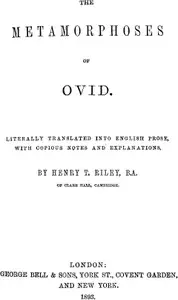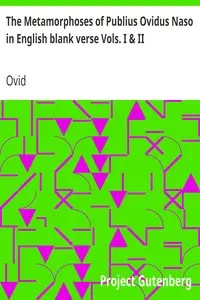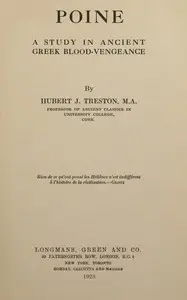"Remedia Amoris; or, The Remedy of Love" by Ovid is a poetic treatise written in the late 1st century BC. This work can be categorized as a didactic poem and serves as a sequel to Ovid's earlier work, "Ars Amatoria." The central topic of this book is the exploration of love's complexities and the various remedies for overcoming unrequited or overwhelming passion. In "Remedia Amoris," Ovid offers advice to lovers suffering from heartache, providing a mix of practical tips and philosophical musings on love itself. He discusses the dangers of idle passion and emphasizes the importance of self-discipline as a strategy to mitigate emotional suffering. The text illustrates various strategies for overcoming love, including avoidance, engagement in productive activities, and employing distraction techniques. Ovid also incorporates examples from mythology, pointing out how various figures faced their struggles with love and pain, thus intertwining personal guidance with broader cultural narratives. Through humor, vivid imagery, and rich metaphors, the poem ultimately reflects on the lighter side of love's turmoil, suggesting that healing from heartbreak is possible by transforming one's perspective on love and the beloved. (This is an automatically generated summary.)

Remedia Amoris; or, The Remedy of Love Literally Translated into English Prose, with Copious Notes
By Ovid
"Remedia Amoris; or, The Remedy of Love" by Ovid is a poetic treatise written in the late 1st century BC. This work can be categorized as a didactic p...
Publius Ovidius Naso, known in English as Ovid, was a Roman poet who lived during the reign of Augustus. He was a younger contemporary of Virgil and Horace, with whom he is often ranked as one of the three canonical poets of Latin literature. The Imperial scholar Quintilian considered him the last of the Latin love elegists. Although Ovid enjoyed enormous popularity during his lifetime, the emperor Augustus exiled him to Tomis, the capital of the newly-organised province of Moesia, on the Black Sea, where he remained for the last nine or ten years of his life. Ovid himself attributed his banishment to a "poem and a mistake", but his reluctance to disclose specifics has resulted in much speculation among scholars.


















